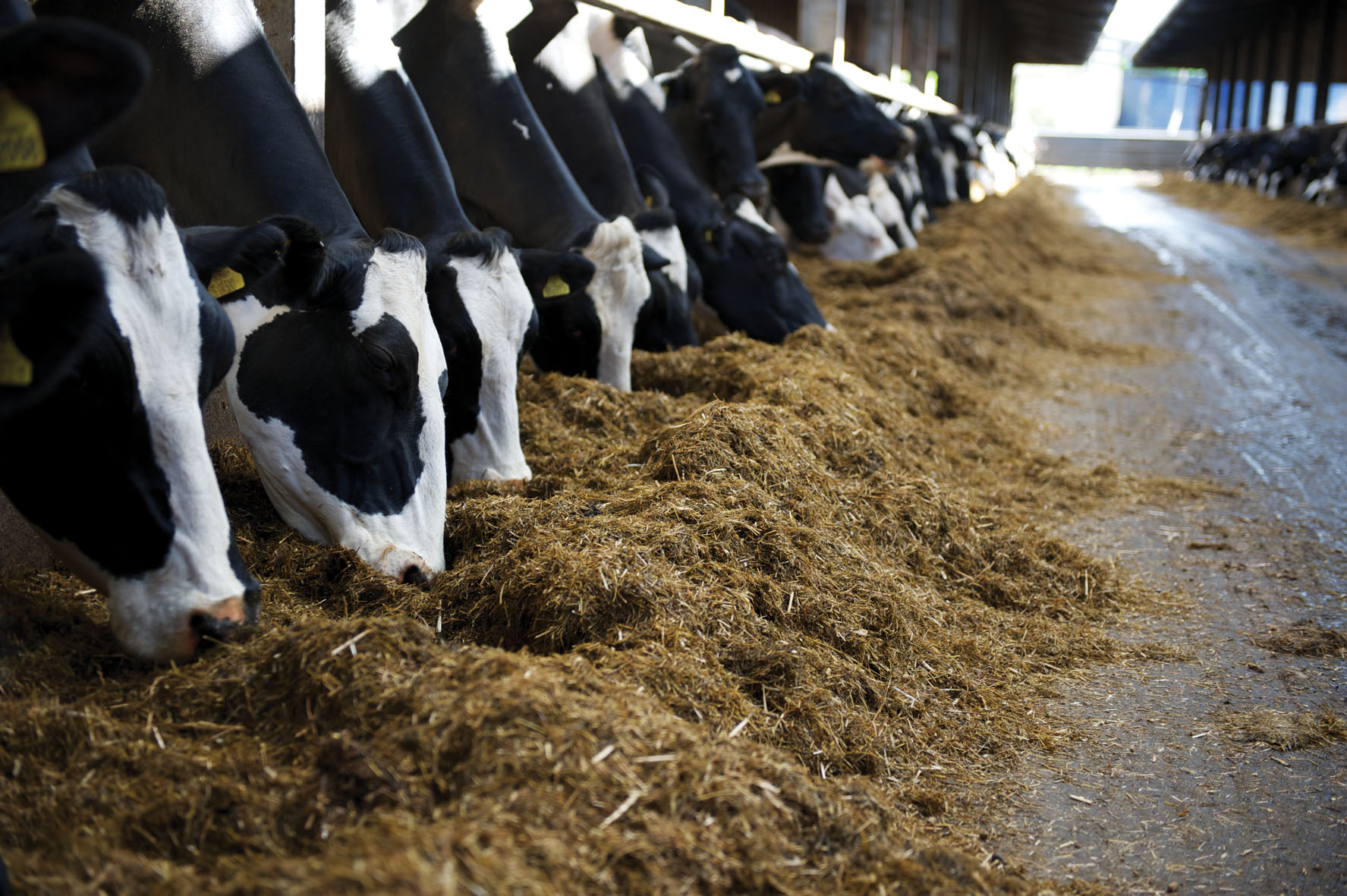Body condition
In late lactation the key focus should be on preventing cows getting too fat as Holstein cows are not good at dealing with too much body condition. A condition score of 3.5 should be the target, with this being made up from lean meat and not fat, something which is achieved with a total diet crude protein of 13.5%. Cows with a body condition score of more than 3.5 in the last weeks of pregnancy are more likely to suffer from fatty liver disease, ketosis and a build up of NEFAs (Non Esterified Fatty Acids), which can lead to immune system suppression and an increase in health issues
in the next lactation. Fat cows will also have a lower dry matter intake in early lactation, giving rise to a longer period of negative energy balance, and this can significantly reduce fertility.
Indeed, if condition score loss is more than 1 score in early lactation then conception rates can fall as low as 17%!
If late lactation cows are too fat then they should be dried off early and fed a low energy, high fibre diet. Don’t try to slim cows in the last 8 weeks of pregnancy though, as this can lead to problems.
Mineral status and metabolic diseases
During the dry period it is also important that mineral and vitamin status is correctly maintained to avoid problems with metabolic diseases such as milk fever. In particular, calcium status is critical as the cow has a four-fold increase in the demand for calcium at calving to support muscle function. Magnesium status is also critical and potash and sodium levels must be low to avoid problems with calcium mobilisation. This can be checked through the dietary cation anion difference (DCAD) in the diet – something your nutritionist can help you with.
Metabolic diseases such as milk fever can cost more than £250 (€300) per case and cows with milk fever are also more likely to suffer other health issues such as retained cleansings, metritis, lameness and mastitis. What’s more, metabolic disease infection also affects fertility so adequate balanced mineral supplementation is essential.
Dry matter intake
In the transition period, intake drops by approximately 30% and maximising intake at this point is critical to reducing negative energy balance pre-calving, which can lead to metabolic disorders and affect immunity. Supplementation with 2kg/head of concentrates can be very effective.
Diet consistency is also important as the rumen papilla need to be stimulated to maximise nutrient absorption in early lactation, so diets need to have sufficient ‘scratch factor’ whilst ensuring that energy and protein levels are adequate. Intake is not only a factor of diet specification but also of the environment. Feed areas should allow easy access for cows and there should ideally be 30” of feed barrier space per cow. Care should be taken to avoid ruminal acidosis in early lactation by ensuring that the diet is balanced. Supplementation with a protected live yeast such as Actisaf Sc 47 helps to reduce the risk of acidosis and improves gut health.
Cow comfort
Cows will not perform if they are not comfortable. Loose yards should provide at least 9m2 (around 100 sq ft) per cow and cubicles should ideally be set at 1.27m (50”) centres as a minimum and have adequate length to allow cows to index properly. Cows should be provided with adequate bedding for comfort and cleanliness. A rule of thumb for cubicle comfort is that you should be able to drop from a standing position on to your knees on the back of any cubicle and it shouldn’t cause you discomfort. If it does then you may need more bedding!
Summary
Good dry cow management is fundamental to good milk yields, health and fertility. It is important to get the nutrition right in late lactation, during the dry period and in early lactation but other factors such as housing and the design of the feed area also play an important part.
Supplementation with minerals and live yeast is beneficial in reducing or preventing dietary problems that can lead to metabolic disorders.

